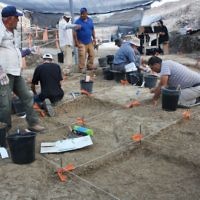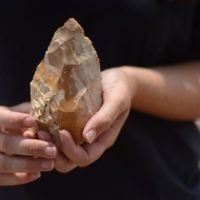Israeli archaeologists discover prehistoric ‘paradise’ near Tel Aviv
Antiquities experts find hundreds of tools thought to be from early human ancestors nearly half-a-million years ago
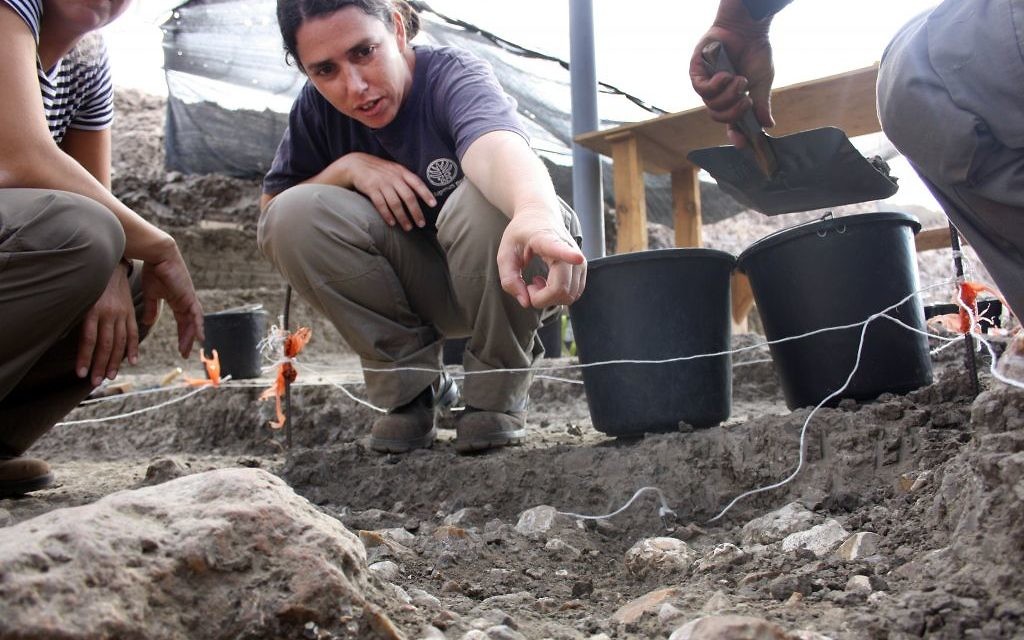 Hundreds of hand axes were uncovered in the excavation. Photographer : Samuel Magal, Courtesy of the Israel Antiquities Authority
Hundreds of hand axes were uncovered in the excavation. Photographer : Samuel Magal, Courtesy of the Israel Antiquities Authority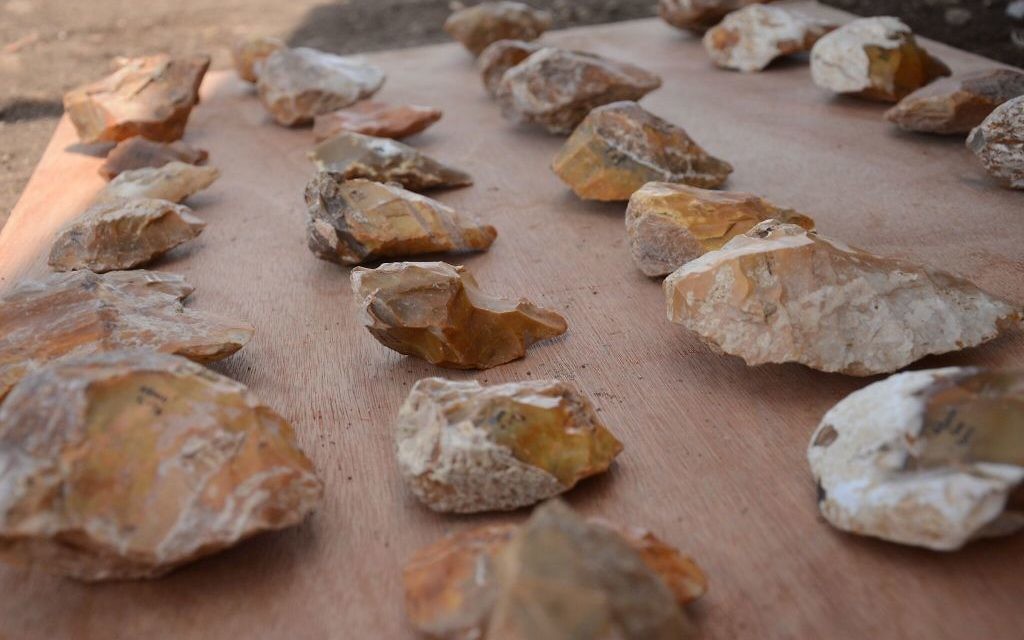 Maayan Shemer, excavation director for the Israel Antiquities Authority, showing a half-million year-old hand axe. Photographer : Samuel Magal, Courtesy of the Israel Antiquities Authority
Maayan Shemer, excavation director for the Israel Antiquities Authority, showing a half-million year-old hand axe. Photographer : Samuel Magal, Courtesy of the Israel Antiquities Authority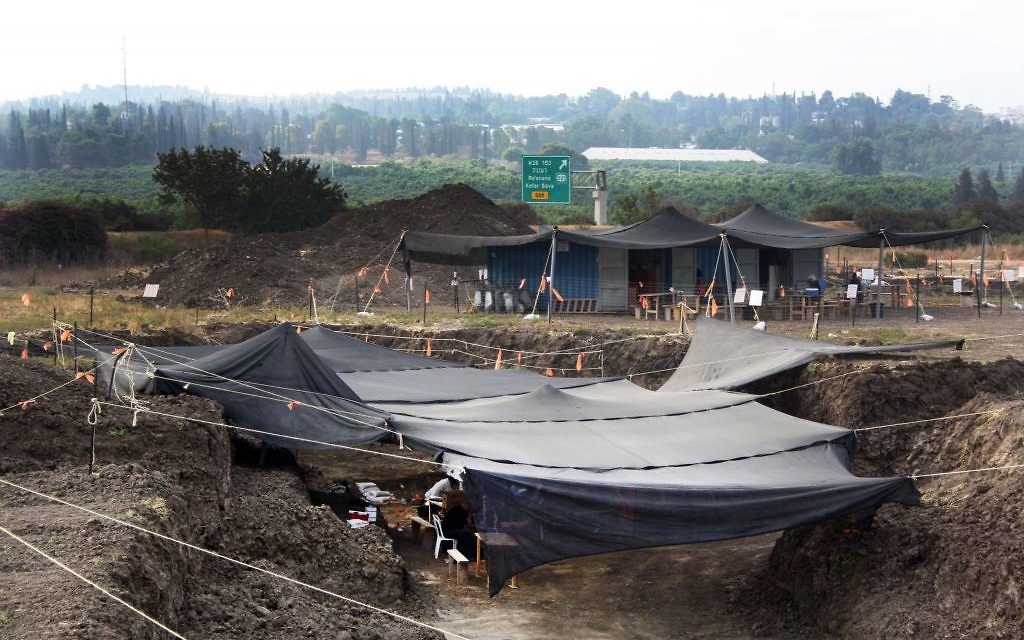 Hundreds of hand axes were uncovered in the excavation. Photographer : Samuel Magal, Courtesy of the Israel Antiquities Authority
Hundreds of hand axes were uncovered in the excavation. Photographer : Samuel Magal, Courtesy of the Israel Antiquities Authority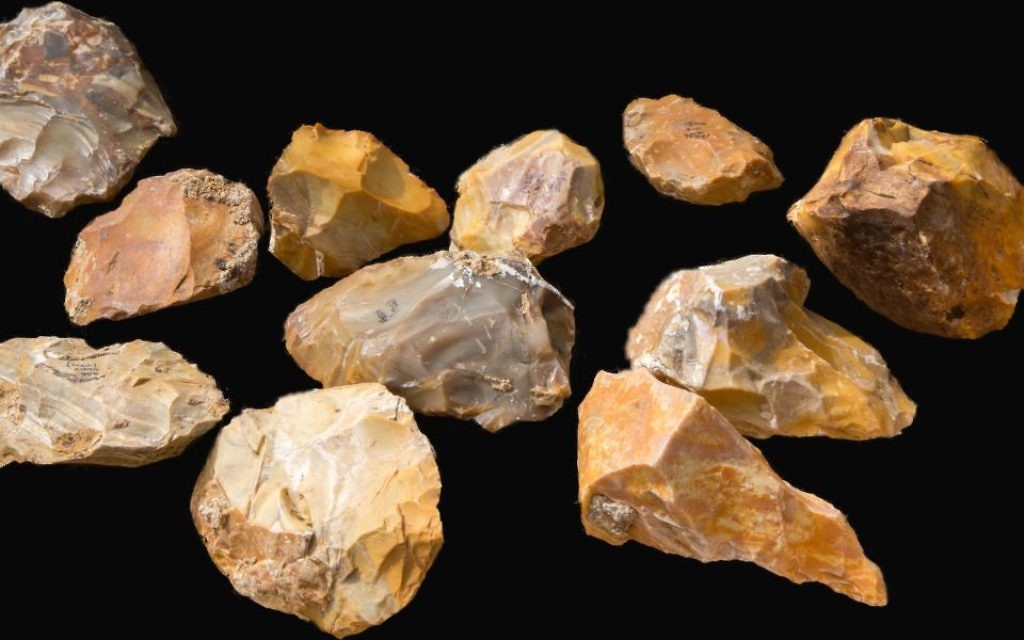 Hundreds of hand axes were uncovered in the excavation, which may re-write the history of human migration. Photographer : Samuel Magal, Courtesy of the Israel Antiquities Authority
Hundreds of hand axes were uncovered in the excavation, which may re-write the history of human migration. Photographer : Samuel Magal, Courtesy of the Israel Antiquities Authority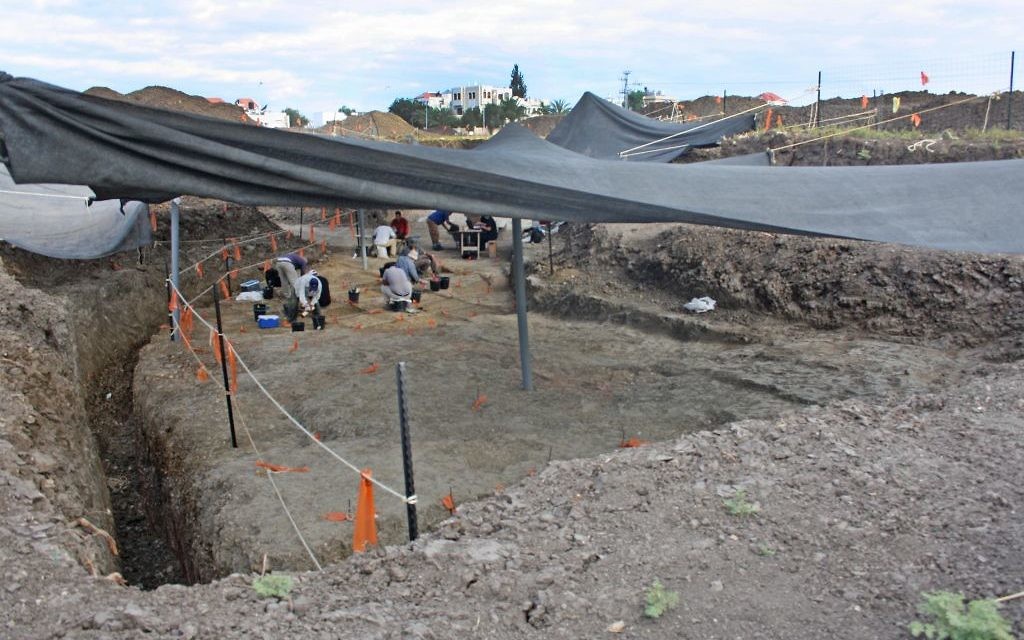 .The excavation at Jaljulia. Photographs: Samuel Magal, Courtesy of the Israel Antiquities Authority
.The excavation at Jaljulia. Photographs: Samuel Magal, Courtesy of the Israel Antiquities Authority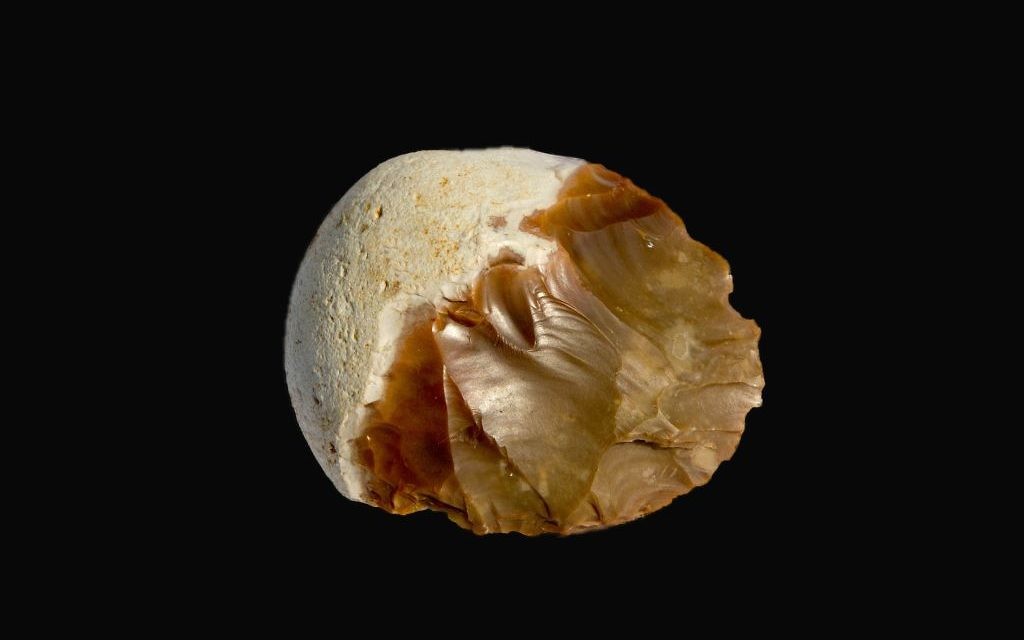 Hundreds of hand axes were uncovered in the excavation. Photographer : Samuel Magal, Courtesy of the Israel Antiquities Authority
Hundreds of hand axes were uncovered in the excavation. Photographer : Samuel Magal, Courtesy of the Israel Antiquities Authority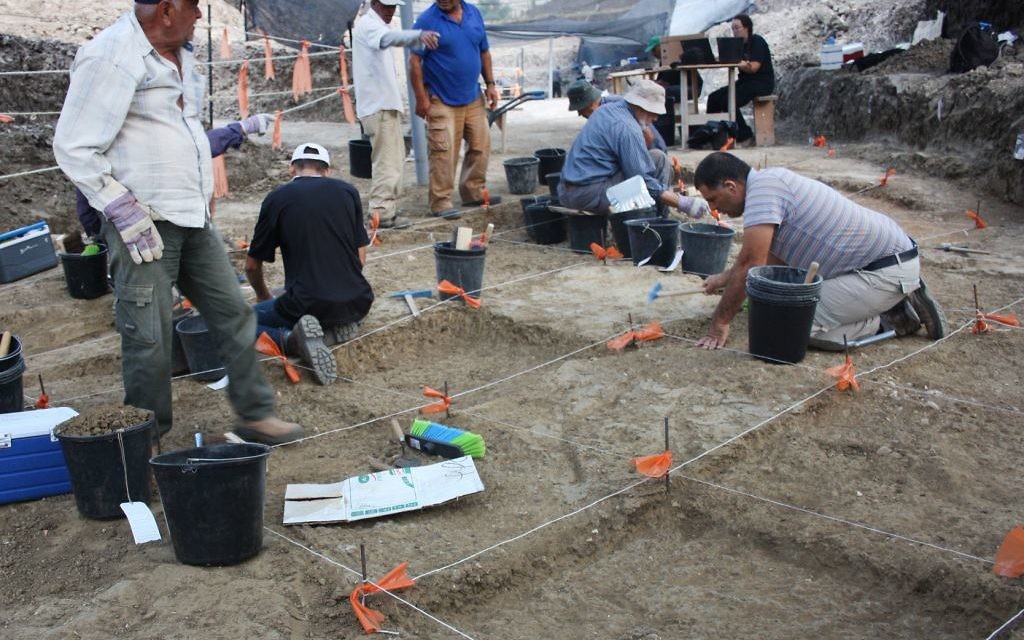 Excavation at Jaljulia. Photographs: Samuel Magal, Courtesy of the Israel Antiquities Authority
Excavation at Jaljulia. Photographs: Samuel Magal, Courtesy of the Israel Antiquities Authority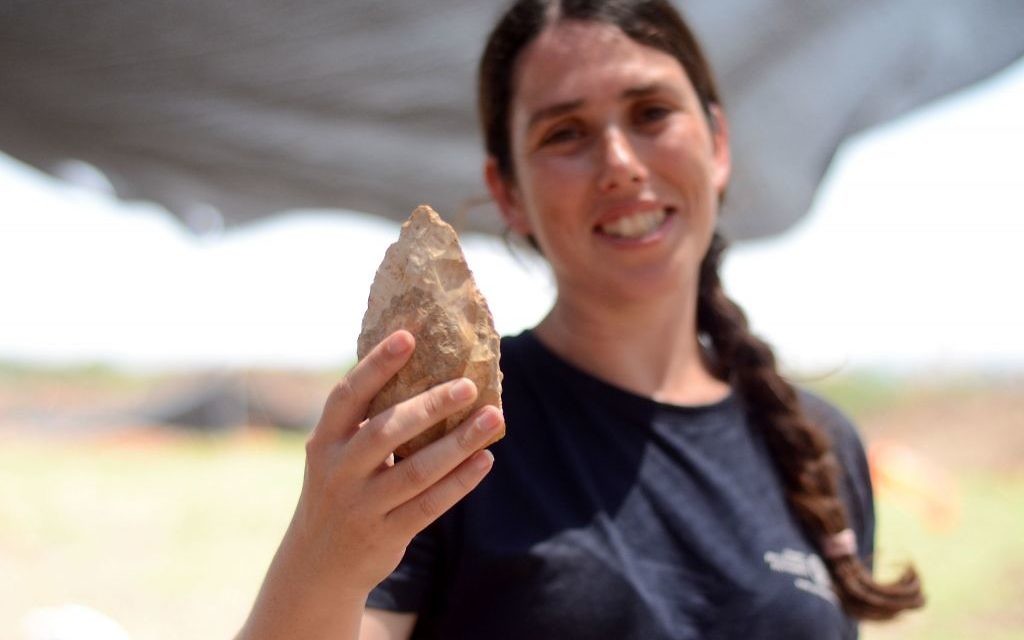 .The excavation at Jaljulia. Photographs: Samuel Magal, Courtesy of the Israel Antiquities Authority
.The excavation at Jaljulia. Photographs: Samuel Magal, Courtesy of the Israel Antiquities Authority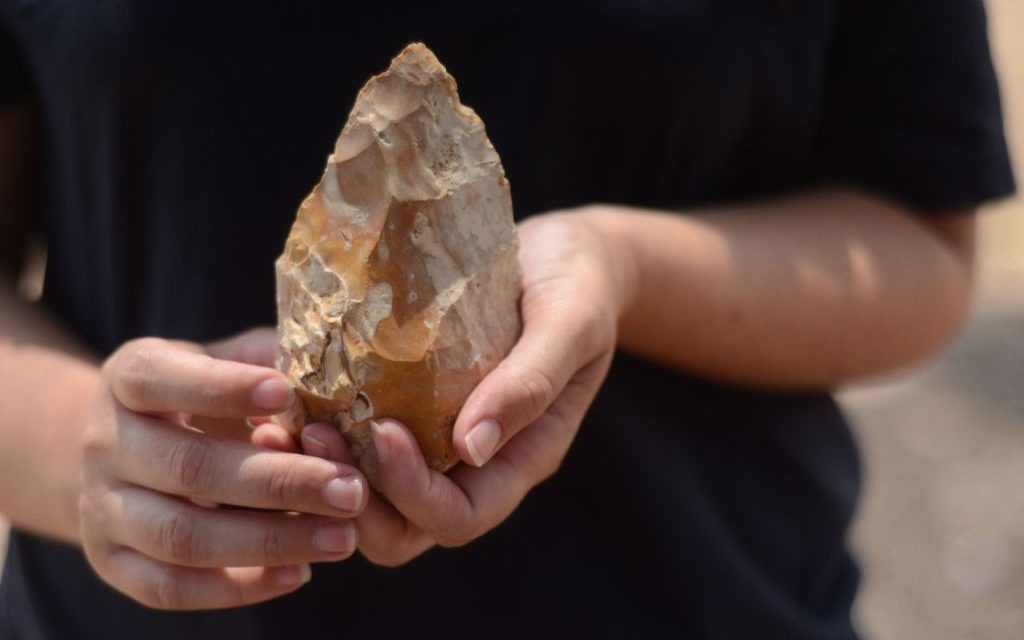
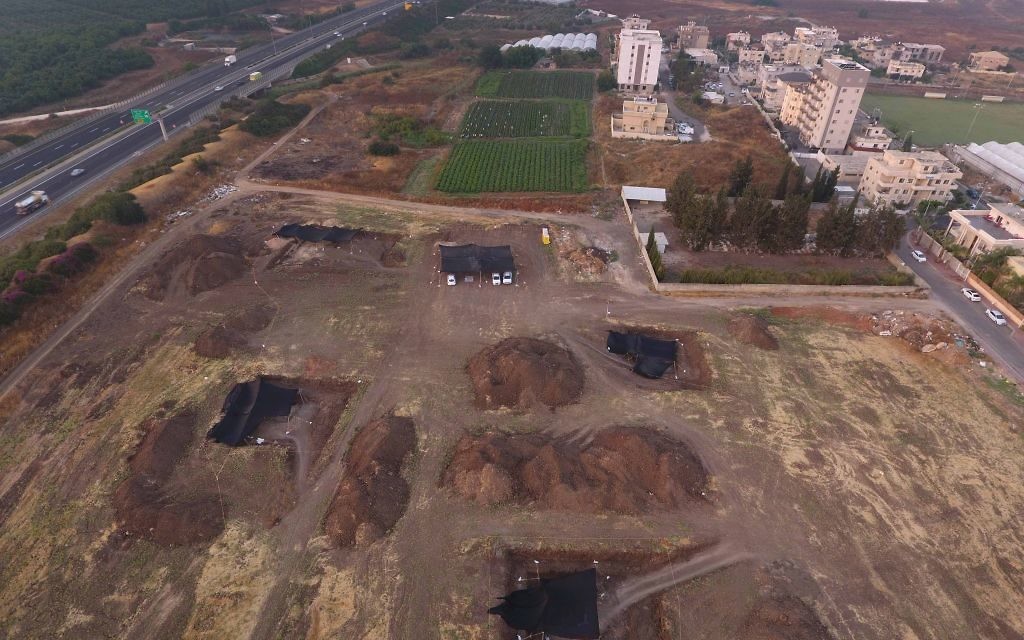 The excavation at Jaljulia, aerial view. Photograph: Yitzhak Marmelstein, Courtesy of the Israel Antiquities Authority
The excavation at Jaljulia, aerial view. Photograph: Yitzhak Marmelstein, Courtesy of the Israel Antiquities Authority
Israeli archaeologists working in an Israeli Arab town have said they’ve uncovered evidence of a “paradise” location for early human ancestors half a million years ago.
Antiquities experts could barely contain their joy with the discovery of hundreds of prehistoric tools in an area of ancient riverbed lying only two metres below ground adjoining Route 6, a major motorway.
Hundreds of flint heads used as tools of the Acheulian culture have been found at Jaljulia near Kfar Saba, with Prof. Ran Barkai, head of archaeology at Tel Aviv University, describing it as an “extraordinary quantity”.
Get The Jewish News Daily Edition by email and never miss our top stories Free Sign Up
The excavation, funded by the Israel Land Authority, has shone a new light on the habits of Homo Erectus, the precursor to Homo Sapiens, in an area that would once have been filled with animals, green vegetation and streams.
The river would have brought flint nodules, needed for the teardrop-shaped axe-heads, described as the Swiss Army knife of the day. They were used to bring down and butcher animals, which were drawn to the area for its greenery and water. “So it was like a paradise for the people here,” said Barkai.
“The fact that the site was occupied repeatedly indicates that prehistoric humans possessed a geographic memory of the place, and could have returned here as a part of a seasonal cycle.”
Digging has been conducted by the Israel Antiquities Authority, with experts blown away by the extraordinary level of preservation, and the way different layers of sediment show progressing levels of tool manipulation and sophistication.
“We see here a wide technological variety,” said IAA excavation director Maayan Shemer. “There is no doubt that researching these finds in-depth will contribute greatly to the understanding of the lifestyle and human behavior during the period in which Homo Erectus inhabited our area.”
-
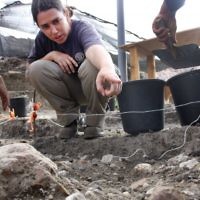
- Hundreds of hand axes were uncovered in the excavation. Photographer : Samuel Magal, Courtesy of the Israel Antiquities Authority
-
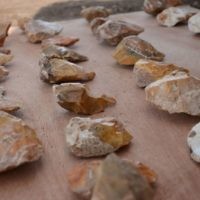
- Maayan Shemer, excavation director for the Israel Antiquities Authority, showing a half-million year-old hand axe. Photographer : Samuel Magal, Courtesy of the Israel Antiquities Authority
-
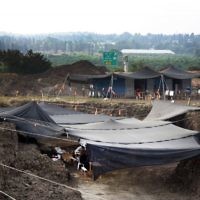
- Hundreds of hand axes were uncovered in the excavation. Photographer : Samuel Magal, Courtesy of the Israel Antiquities Authority
-
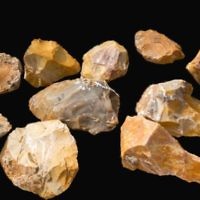
- Hundreds of hand axes were uncovered in the excavation, which may re-write the history of human migration. Photographer : Samuel Magal, Courtesy of the Israel Antiquities Authority
-
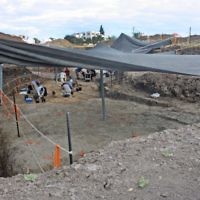
- .The excavation at Jaljulia. Photographs: Samuel Magal, Courtesy of the Israel Antiquities Authority
-
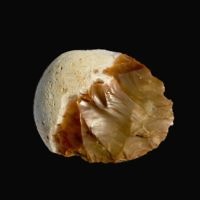
- Hundreds of hand axes were uncovered in the excavation. Photographer : Samuel Magal, Courtesy of the Israel Antiquities Authority
-
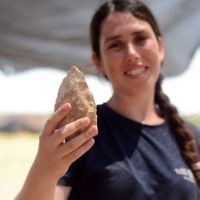
- .The excavation at Jaljulia. Photographs: Samuel Magal, Courtesy of the Israel Antiquities Authority
-
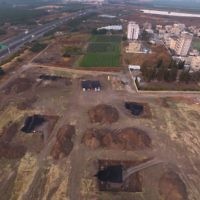
- The excavation at Jaljulia, aerial view. Photograph: Yitzhak Marmelstein, Courtesy of the Israel Antiquities Authority

Thank you for helping to make Jewish News the leading source of news and opinion for the UK Jewish community. Today we're asking for your invaluable help to continue putting our community first in everything we do.
For as little as £5 a month you can help sustain the vital work we do in celebrating and standing up for Jewish life in Britain.
Jewish News holds our community together and keeps us connected. Like a synagogue, it’s where people turn to feel part of something bigger. It also proudly shows the rest of Britain the vibrancy and rich culture of modern Jewish life.
You can make a quick and easy one-off or monthly contribution of £5, £10, £20 or any other sum you’re comfortable with.
100% of your donation will help us continue celebrating our community, in all its dynamic diversity...
Engaging
Being a community platform means so much more than producing a newspaper and website. One of our proudest roles is media partnering with our invaluable charities to amplify the outstanding work they do to help us all.
Celebrating
There’s no shortage of oys in the world but Jewish News takes every opportunity to celebrate the joys too, through projects like Night of Heroes, 40 Under 40 and other compelling countdowns that make the community kvell with pride.
Pioneering
In the first collaboration between media outlets from different faiths, Jewish News worked with British Muslim TV and Church Times to produce a list of young activists leading the way on interfaith understanding.
Campaigning
Royal Mail issued a stamp honouring Holocaust hero Sir Nicholas Winton after a Jewish News campaign attracted more than 100,000 backers. Jewish Newsalso produces special editions of the paper highlighting pressing issues including mental health and Holocaust remembrance.
Easy access
In an age when news is readily accessible, Jewish News provides high-quality content free online and offline, removing any financial barriers to connecting people.
Voice of our community to wider society
The Jewish News team regularly appears on TV, radio and on the pages of the national press to comment on stories about the Jewish community. Easy access to the paper on the streets of London also means Jewish News provides an invaluable window into the community for the country at large.
We hope you agree all this is worth preserving.
-
By Brigit Grant
-
By Laurent Vaughan - Senior Associate (Bishop & Sewell Solicitors)
-
By Laurent Vaughan - Senior Associate (Bishop & Sewell Solicitors)
-
By Laurent Vaughan - Senior Associate (Bishop & Sewell Solicitors)
-
By Laurent Vaughan - Senior Associate (Bishop & Sewell Solicitors)


